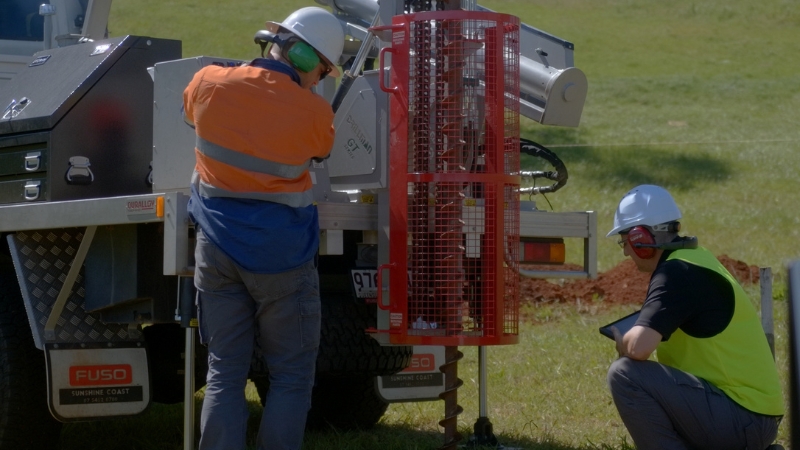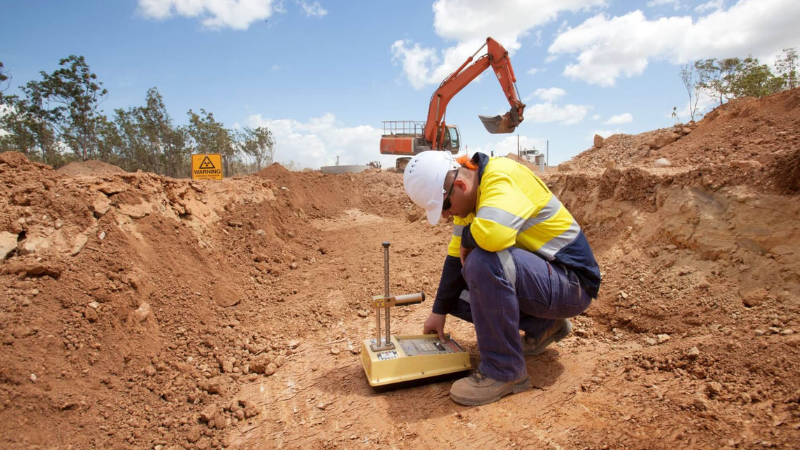Checking out the Perks of Geo Tech Engineering for Urban Planning
Checking out the Perks of Geo Tech Engineering for Urban Planning
Blog Article
Comprehending the Comprehensive Duty of Geotechnical Engineers in Ground Examination and Soil Evaluation for Construction Jobs
Geotechnical engineers are important to the success of building projects, supplying important understandings with detailed ground examinations and dirt analysis. Their expertise in assessing soil habits and employing advanced testing techniques notifies important choices that maintain architectural honesty and safety and security.
Role of Geotechnical Designers
The crucial role of geotechnical engineers in building jobs can not be overstated, as they give vital understandings into soil behavior and site conditions. These professionals are tasked with examining the viability of the ground for various kinds of structures, making certain safety and security throughout the building and construction process. Their proficiency incorporates a wide variety of activities, including website characterization, soil tasting, and research laboratory testing, which are critical for establishing the mechanical and physical properties of the dirt.
Geotechnical designers use their findings to develop fundamental styles that accommodate load-bearing requirements and reduce dangers associated with dirt settlement, incline, and liquefaction stability. They play an important duty in recognizing potential risks, such as groundwater variations and contamination, which can dramatically influence job stability. Additionally, they work together with designers, civil engineers, and professionals to guarantee that geotechnical considerations are incorporated right into the total layout and building and construction stages.
Ground Examination Techniques
Ground investigation strategies form the foundation of geotechnical engineering, allowing engineers to get a detailed understanding of subsurface conditions. These techniques are vital for evaluating soil properties, establishing groundwater degrees, and determining potential geological risks.
Typical techniques consist of borehole exploration, which permits for the extraction of soil examples at various midsts, offering vital data for analysis. In addition, sitting screening strategies, such as Common Penetration Examinations (SPT) and Cone Infiltration Tests (CPT), are used to examine soil toughness and density straight in the ground.
Geophysical methods additionally play a substantial role in ground examinations. Strategies such as seismic surveys and electrical resistivity tomography help analyze subsurface attributes without extensive excavation. geotechnical industry. These non-invasive methods are specifically useful in delicate or huge areas where disturbance have to be lessened
Moreover, exploratory trenches can be excavated to aesthetically evaluate dirt layers and identify any abnormalities. Each of these techniques adds special understandings, permitting geotechnical engineers to establish exact website assessments and notify layout decisions. In recap, a mix of these ground investigation methods is crucial for effective building and construction tasks, making certain security and architectural honesty.
Soil Analysis Techniques
Soil analysis techniques are critical for comprehending the physical and chemical residential or commercial properties of dirt, which straight affect the design and construction of structures and various other frameworks. Different methods are used to evaluate soil features, making sure that geotechnical engineers get exact information for informed decision-making.
One frequently utilized approach is grain dimension evaluation, which identifies the circulation of particle dimensions within a soil example. This is vital for classifying soil types and forecasting their habits under lots. An additional necessary technique is Atterberg restrictions testing, which examines the plasticity and dampness web content of fine-grained soils, providing insights right into their design homes.

Field examinations, such as Conventional Infiltration Tests (SPT) and Cone Penetration Examinations (CPT), deal useful in-situ data concerning soil stamina and stratification. Collectively, these soil evaluation methods create the structure of geotechnical examination, allowing engineers to create risk-free and reliable structures customized to the certain problems of the website.
Risk Mitigation Strategies
Applying efficient danger mitigation techniques is necessary for geotechnical engineers to resolve possible difficulties in building and construction tasks. These techniques i thought about this are important in determining, examining, and taking care of threats connected with dirt problems, website stability, and groundwater variations, which can negatively influence job results.
One primary method involves carrying out detailed website investigations that utilize sophisticated geophysical methods and thorough dirt sampling. By acquiring accurate data on subsurface conditions, designers can make informed decisions on style and construction approaches. In addition, employing anticipating modeling devices permits for the simulation of various situations, enabling designers to visualize potential troubles and execute safety nets.
Moreover, establishing clear communication channels amongst job stakeholders promotes a joint method to risk management. Routine updates and consultations guarantee that all parties are aware of the advancing website problems and can adapt their methods as necessary.

Influence on Building And Construction Jobs
The efficiency of danger mitigation approaches directly influences the general success of building tasks. Geotechnical engineers play a critical function in this domain name, as their expertise in ground investigation and soil evaluation informs essential choices throughout the building and construction process. By precisely analyzing soil conditions and recognizing possible hazards, these experts enable project groups to develop effective solutions that minimize risks related to ground instability, water seepage, and other geotechnical challenges.
The influence of thorough geotechnical evaluation appears in numerous facets of building and construction jobs, including cost administration, project timelines, and architectural integrity. Early recognition of problems enables for timely interventions, minimizing costly hold-ups and budget plan overruns. Additionally, a comprehensive understanding of website problems improves the design and engineering process, guaranteeing that structures are built to endure environmental stress and potential natural calamities.
Eventually, the payments of geotechnical designers are essential to the effective execution of construction projects. Their work not just cultivates safety and compliance with laws yet additionally boosts the lasting sustainability of frameworks, ensuring that they carry out successfully throughout their intended lifespan. The cooperation in between other stakeholders and geotechnical teams is essential for achieving optimal results in building and construction endeavors.
Final Thought
Finally, geotechnical engineers do a crucial function in building projects via extensive ground investigations and dirt analyses. Their proficiency in evaluating dirt behavior, employing numerous investigation strategies, and implementing danger reduction techniques significantly adds to the architectural honesty and security of built atmospheres. By working together with multidisciplinary groups, these experts improve job performance and make sure conformity with safety and security standards, eventually bring about effective building results and minimized potential dangers.
Geotechnical engineers are integral to the success of building tasks, supplying crucial understandings via thorough ground examinations and soil analysis.The pivotal duty of geotechnical engineers in construction jobs can not be overemphasized, as they give vital understandings right into soil habits and website conditions. Their experience incorporates a wide range of tasks, consisting of site characterization, dirt helpful resources sampling, and lab screening, which are crucial for figuring out the mechanical and physical residential or commercial properties of the soil.
By properly evaluating dirt conditions and determining potential dangers, these experts enable project groups to devise efficient solutions that lower threats connected with ground instability, water infiltration, and other geotechnical difficulties.
In final thought, geotechnical designers do a crucial feature in building and construction jobs with comprehensive ground examinations and soil analyses.
Report this page